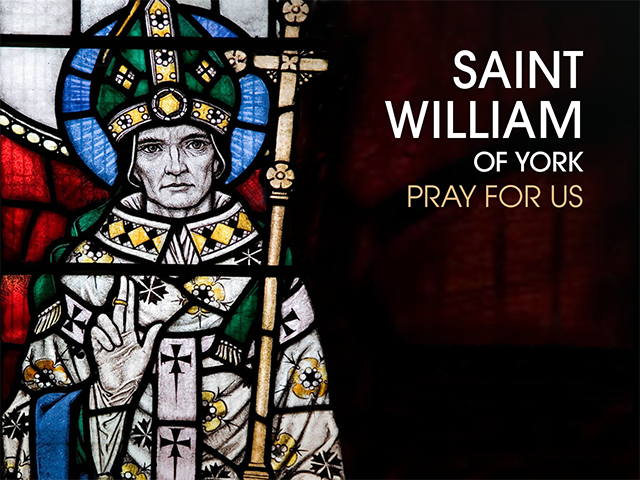



St. William of York (d. 1154) was born to a powerful family in England, the nephew of the king. He became a priest and then treasurer of York Minster Cathedral at the time when the English crown was contested by two grandchildren of William the Conqueror. When the Archbishop of York died, William was chosen to take his place. Kind-hearted and generous to the poor, he was well-liked by the people; however, he faced political and ecclesiastical opposition from the rival to the English throne. Because he was consecrated without papal approval, William was accused of wrongdoing by those who wanted their preferred prelate in the position; even St. Bernard of Clairvaux opposed him. Although the pope confirmed William's appointment, the pope died before the pallium was given, and the new pope took the side of William's detractors. A new archbishop was ordained in his place while William went to live as a monk with his uncle, a bishop, in quiet prayer and penance. The people of York, upset that their favorite had been deposed, took to rioting. Six years later the Archbishop of York died, and another new pope made William the successor. The people were overjoyed at his return, and so many came to greet him as he arrived into the city that a bridge collapsed under their weight; the fact that no one was hurt was considered a miracle. A few months later, after celebrating Mass on Trinity Sunday, William became ill and died. Poisoning was suspected but never confirmed. Miracles took place at his tomb which gave rise to his canonization in 1227. His feast day is June 8th.